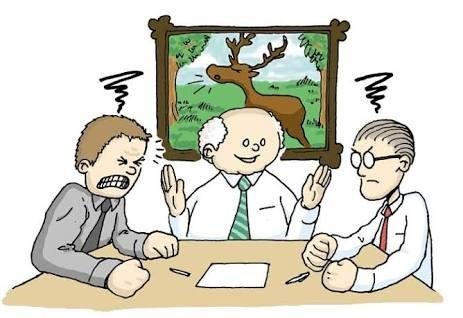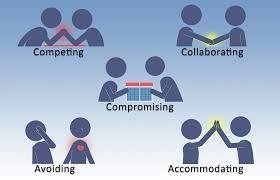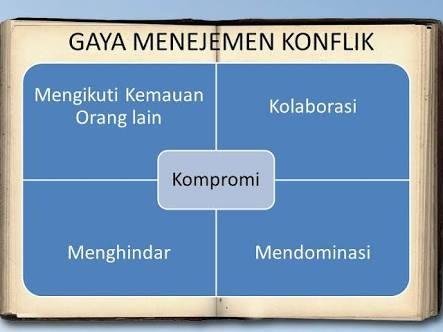CONFLICT MANAGEMENT

Conflict management is a series of actions and reactions between actors and outsiders in a conflict. Conflict management involves a process-oriented approach that leads to the form of communication (including behavior) of the offender as well as outsiders and how they affect interests and interpretations. For outsiders (outside of ones conflict) as a third party, what it needs is accurate information about the conflict situation. This is because effective communication among actors can occur if there is confidence in a third party.

According to Ross, conflict management is a measure taken by actors or third parties in order to direct disputes toward certain outcomes that may or may not result in an end to conflict resolution and may or may not result in calm, positive, creative, consensual, or aggressive. Conflict management may involve self-help, cooperation in solving problems (with or without third-party assistance) or decision-making by third parties. A conflict-oriented approach to management processes refers to the patterns of communication (including behavior) of actors and how they affect the interests and interpretation of the conflict.
While Minnery states that conflict management is a process, as well as urban planning is a process. Minnery also argues that the urban planning conflict management process is a rational and iterative part, meaning that the conflict management model of urban planning is continuously improving until it reaches a representative and ideal model. Similar to the conflict management process described above, urban planning conflict management encompasses several steps: acceptance of conflict (avoidable or suppressed), clarification of conflict characteristics and structures, conflict evaluation (if useful then continued with the next process) , determine the action required to manage the conflict, and determine the role of the planner as a participant or third party in managing the conflict. The whole process takes place in the context of urban planning and involves planners as actors managing conflict either as participants or third parties.
